
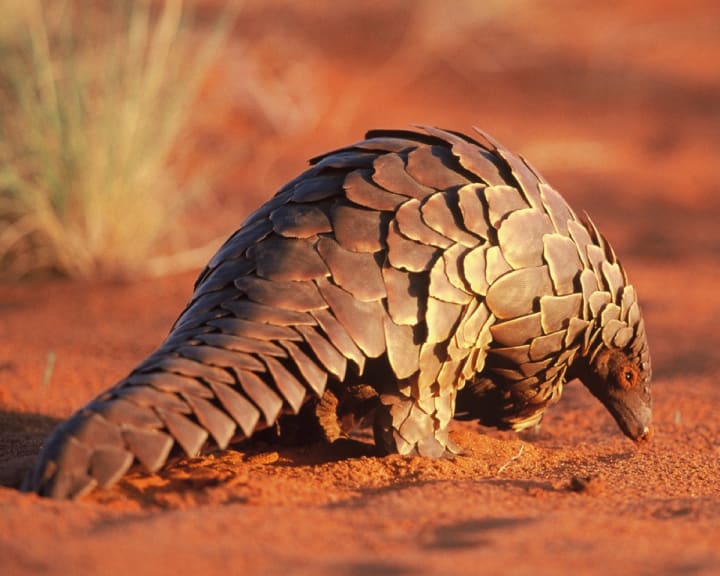
The pangolin is a mammal that is native to Africa and Asia. It is also known as the scaly anteater, due to its unique appearance and diet. There are eight different species of pangolin, four of which are found in Asia and four in Africa.
Pangolins are covered in large, overlapping scales made of keratin, which is the same material that makes up human hair and nails. These scales serve as a protective armor against predators, and can be used to roll into a tight ball when threatened. Pangolins also have long, sticky tongues that they use to capture their prey of ants and termites.
Pangolins are nocturnal and solitary animals, and spend most of their time on the ground. They are excellent climbers, however, and can also climb trees to escape danger. Pangolins have poor eyesight, but have a highly developed sense of smell and hearing.
Unfortunately, pangolins are facing numerous threats in the wild, including habitat loss and poaching. Pangolin scales and meat are highly valued in traditional Chinese medicine, and pangolins are also considered a delicacy in some countries. All eight species of pangolin are currently listed as either vulnerable, endangered, or critically endangered by the International Union for Conservation of Nature (IUCN). Conservation efforts are underway to protect these unique and fascinating animals from extinction.
“HISTORY OF PANGOLIN”
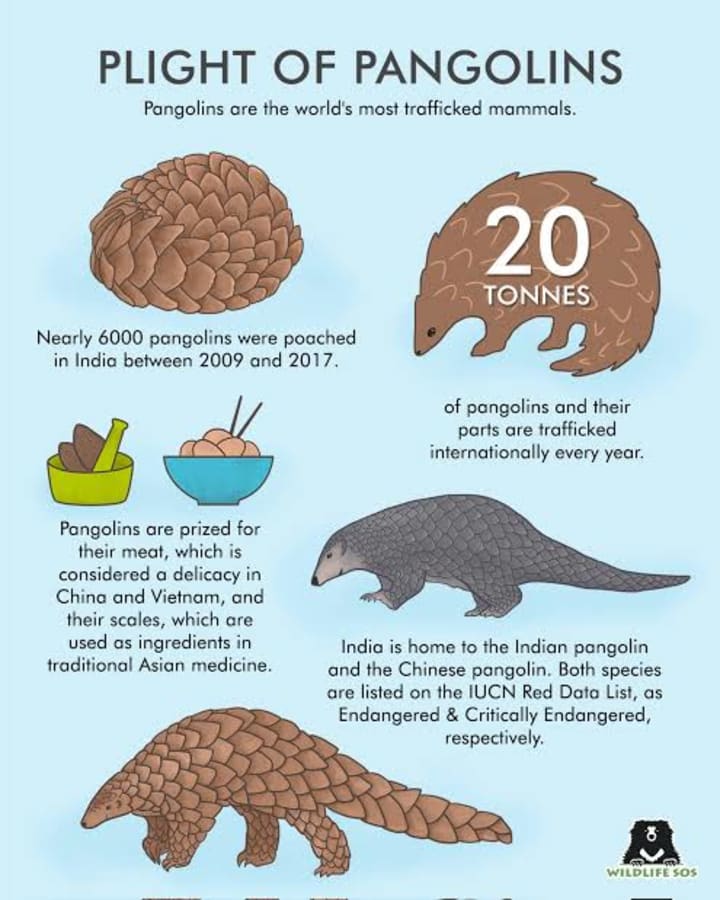
Pangolins have a long history dating back millions of years. The earliest pangolin fossils have been found in Europe and date back to the Eocene epoch, around 45 million years ago. These fossils suggest that pangolins were once widespread across Europe, but their range has since contracted to Asia and Pangolins have a long history dating back millions of years. The earliest pangolin fossils have been found in Europe and date back to the Eocene epoch, around 45 million years ago. These fossils suggest that pangolins were once widespread across Europe, but their range has since contracted to Asia and Africa.
In many African and Asian cultures, pangolins have been revered for their meat, scales, and medicinal properties. In traditional Chinese medicine, pangolin scales are believed to have healing properties, and are used to treat a variety of ailments such as arthritis, asthma, and cancer. Pangolin meat is also considered a delicacy in some parts of Asia.
Unfortunately, the demand for pangolin products has led to widespread poaching and trafficking of pangolins. All eight species of pangolin are now listed as either vulnerable, endangered, or critically endangered by the International Union for Conservation of Nature (IUCN). Conservation efforts are underway to protect these unique and fascinating animals from extinction.
Recently, pangolins have also been in the spotlight due to their potential role in the spread of zoonotic diseases, such as COVID-19. It is believed that the virus may have originated in bats and was transmitted to humans via an intermediate host, which may have been a pangolin. This has increased global awareness about the importance of protecting wildlife and preventing the spread of zoonotic diseases.
In many African and Asian cultures, pangolins have been revered for their meat, scales, and medicinal properties. In traditional Chinese medicine, pangolin scales are believed to have healing properties, and are used to treat a variety of ailments such as arthritis, asthma, and cancer. Pangolin meat is also considered a delicacy in some parts of Asia.
Unfortunately, the demand for pangolin products has led to widespread poaching and trafficking of pangolins. All eight species of pangolin are now listed as either vulnerable, endangered, or critically endangered by the International Union for Conservation of Nature (IUCN). Conservation efforts are underway to protect these unique and fascinating animals from extinction.
Recently, pangolins have also been in the spotlight due to their potential role in the spread of zoonotic diseases, such as COVID-19. It is believed that the virus may have originated in bats and was transmitted to humans via an intermediate host, which may have been a pangolin. This has increased global awareness about the importance of protecting wildlife and preventing the spread of zoonotic diseases.
PANGOLIN BALLS
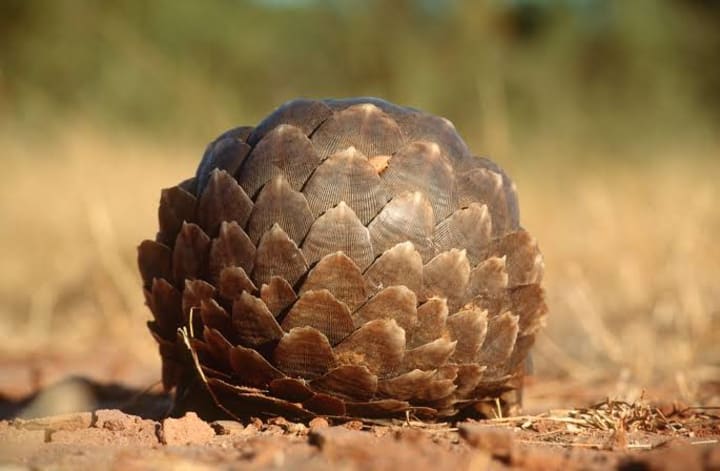
Pangolins are known for their unique defense mechanism of rolling up into a ball when they feel threatened. When a pangolin rolls up, its tough scales form a protective armor around its body, making it difficult for predators to attack. This is an effective defense strategy, as most predators are unable to penetrate the pangolin's armor.
However, it's important to note that pangolins do not voluntarily roll up into a ball, and they only do so when they feel threatened. If a pangolin is approached slowly and calmly, it will often try to escape rather than resorting to rolling up.

It's also important to remember that pangolins are wild animals and should never be kept as pets or used for entertainment purposes. Pangolins are protected by law in many countries, and trafficking and hunting them is illegal. Additionally, the demand for pangolin products is a major driver of their decline in the wild. The best way to help protect pangolins is to support conservation efforts and to raise awareness about the importance of preserving these unique and fascinating animals.
Here are some key things to know about pangolins:
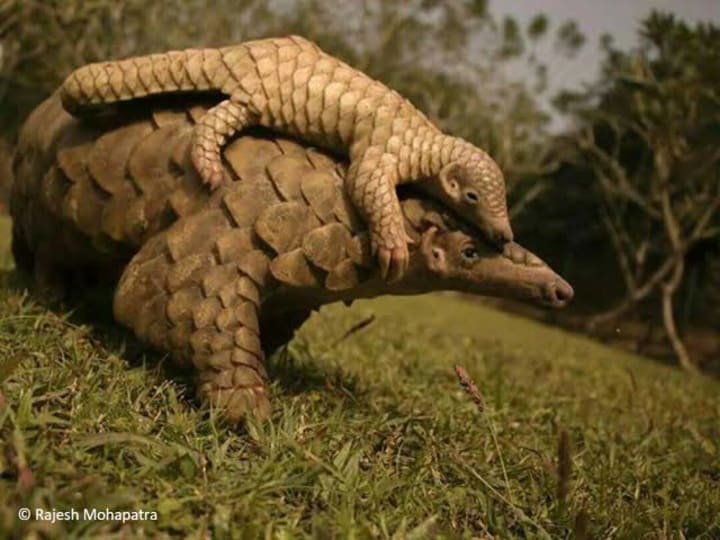
Pangolins are the only mammals with scales, which are made of keratin, the same protein found in human hair and nails.
Pangolins are found in Asia and Africa, and there are eight different species.
Pangolins are solitary, nocturnal animals that spend most of their time on the ground. They are excellent diggers and use their strong claws to dig into ant and termite nests.
Pangolins have poor eyesight but have a highly developed sense of smell and hearing.
When threatened, pangolins curl up into a ball with their tough scales forming a protective armor around them.
Pangolins feed mainly on ants and termites, and have long, sticky tongues that can extend up to 40 cm (16 inches) to capture their prey.
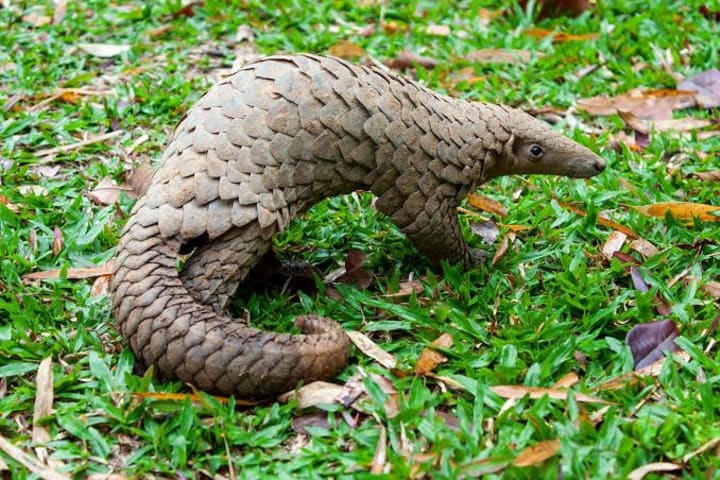
Pangolins are the most trafficked mammal in the world, primarily due to demand for their scales and meat in traditional Chinese medicine.
All eight species of pangolin are listed as either vulnerable, endangered, or critically endangered by the International Union for Conservation of Nature (IUCN).
Pangolins play an important role in their ecosystems as they control ant and termite populations, and their burrows provide homes for other animals such as reptiles and small mammals.
Conservation efforts are underway to protect pangolins from extinction, including initiatives to reduce demand for their products, crackdown on trafficking, and habitat protection.
About the Creator
Lydia Babu
Greeting’s!!! I’m Lydia who is very Passionate about writing!!!






Comments
There are no comments for this story
Be the first to respond and start the conversation.